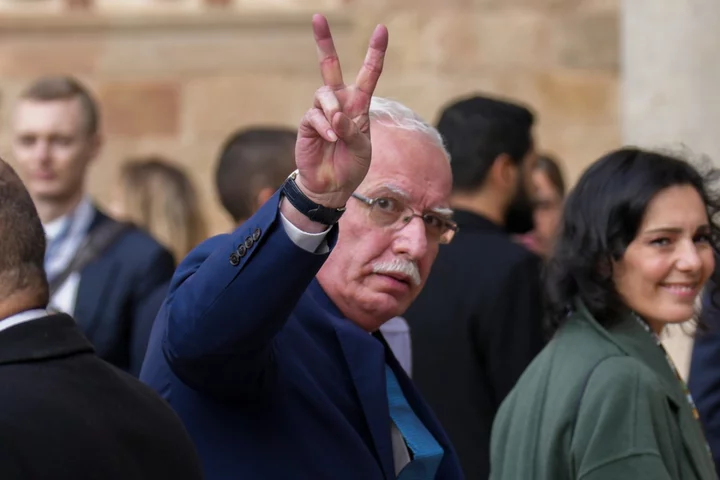
Representatives of European and Arab countries meet in Barcelona to discuss the Israel-Hamas war
Delegations from European Union member states and Middle Eastern and north African countries are meeting Monday in Barcelona, Spain, to discuss the crisis in Gaza, where a fragile pause in fighting is set to expire. Forty-two delegations are scheduled to gather at the event hosted by the Union for the Mediterranean, with many represented by their foreign ministers. The meeting is chaired by the EU’s foreign policy chief, Josep Borrell, and Jordanian Foreign Minister Ayman Safadi. Israel is not attending the meeting, which in past years has largely become a forum for cooperation between the EU and the Arab world. Monday’s gathering was supposed to focus on the role of the union 15 years after its founding, but it has taken on new significance since the Oct. 7 Hamas attack on Israel and Israel’s ensuing war in the Gaza Strip. Borrell said he “regretted” the absence of Israel. He repeated his condemnation of the Hamas attack, while calling on Israel to permanently end its assault, which he said has claimed the lives of over 5,000 children. “One horror cannot justify another horror,” Borrell said. “Peace between Israel and Palestine has become a strategic imperative for the entire Euro-Mediterranean community and beyond." Jordan’s Safadi, who told The Associated Press on the eve of the event that he hopes the talks will help “bridge a gap” between Arab and European countries, urged the officials attending the meeting to back a two-state solution that would recognize a Palestinian state. “My friends, Europe has a crucial role to play,” Safadi said. “The two-state solution cannot remain a talking point.” Saudi Arabia’s Prince Faisal bin Farhan Al Saud has also been invited to the event. A small pro-Palestinian group rallied before the gathering at the art nouveau building that once housed Barcelona's Sant Pau Hospital. The pause in hostilities between Israel and Hamas continued Sunday with a third day of releases of hostages and Palestinian prisoners. It was scheduled for four days and neither side has made fully clear what comes after Monday. Spain is one of the EU countries that has called for Israel to cease its assault, while also condemning the Hamas attack. Spanish Prime Minister Pedro Sánchez said the time has come for the international community and the EU to recognize a Palestinian state during a trip with his Belgian counterpart to Israel, the Palestinian territories and Egypt last week. That prompted Israel to summon the Belgian and Spanish ambassadors. The Union for the Mediterranean is an intergovernmental organization formed by the 27 members of the EU and 16 from the southern and eastern Mediterranean including Israel, the Palestinian Authority, Egypt, Lebanon and Jordan. The EU is the world’s biggest provider of assistance to the Palestinians. Almost 1.2 billion euros ($1.3 billion) has been earmarked for 2021-2024. ___ This story has been corrected to show that Israel summoned the ambassadors of Spain and Belgium, not that it recalled its ambassadors to those countries. Read More Jordan's top diplomat wants to align Europeans behind a call for a permanent cease-fire in Gaza Israel summons Irish ambassador over tweet it alleges doesn't adequately condemn Hamas Why Finland is blaming Russia for a sudden influx of migrants on its eastern border Israel summons Spanish, Belgian ambassadors following criticism during visit to Rafah Slovak leader calls the war between Russia and Ukraine a frozen conflict Activists call on France to endorse a consent-based rape definition across the entire European Union
2023-11-27 17:51
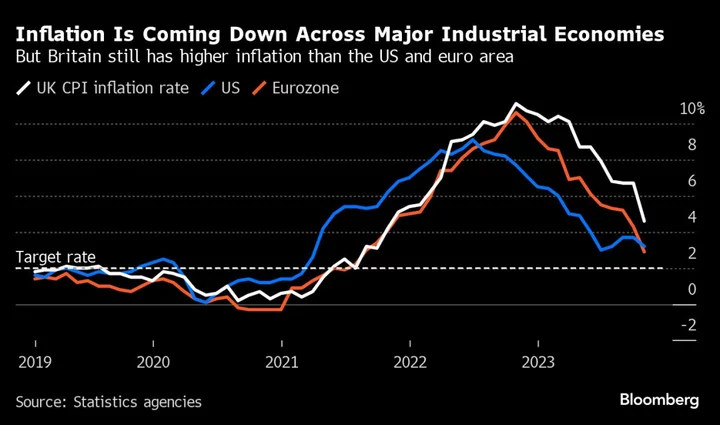
BOE’s Bailey Resists UK Rate Cuts for ‘Foreseeable Future’
Bank of England Governor Andrew Bailey suggested that interest-rate cuts are unlikely for the “foreseeable future” as he
2023-11-27 17:28
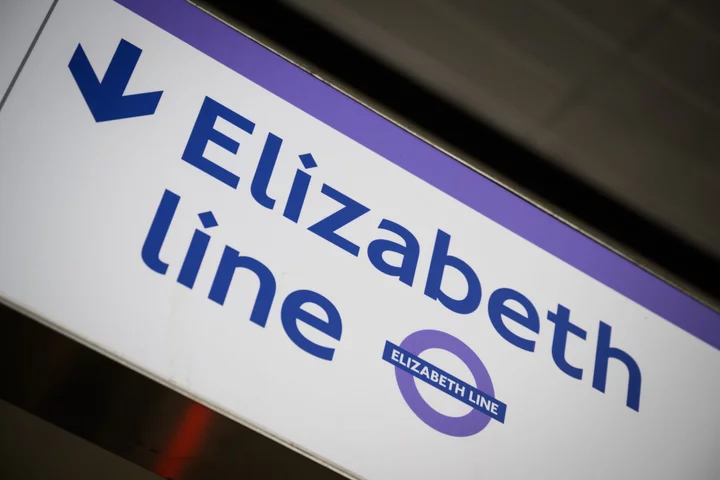
London’s Heathrow Has Manic Monday as Rail Links Fail
Passengers traveling to and from London’s Heathrow airport faced a difficult start to their week with the three
2023-11-27 17:17
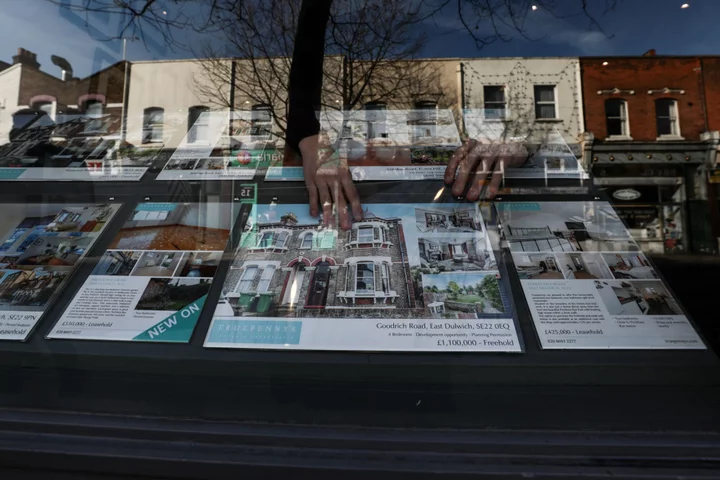
Rightmove Rewarded by Tough Housing Market: The London Rush
Hi, I’m Leo from Bloomberg’s UK Breaking News team, catching you up on this morning’s business stories. There’s
2023-11-27 16:59
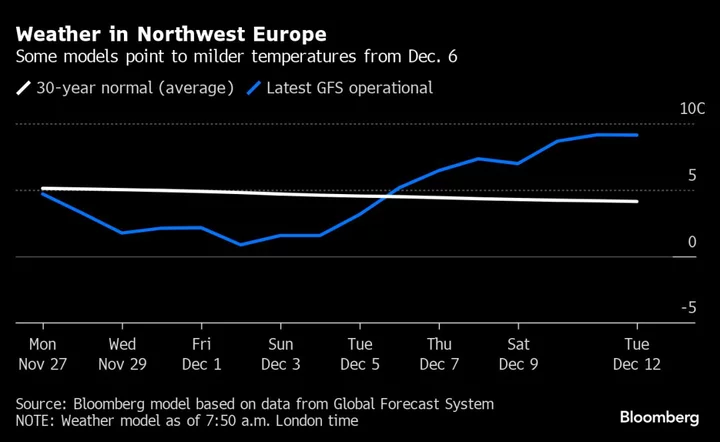
Freezing Weather Hits Europe as Snow Forecast From Germany to UK
Freezing temperatures are spreading across Europe, with snow forecast from Germany to the UK, testing energy systems in
2023-11-27 16:59
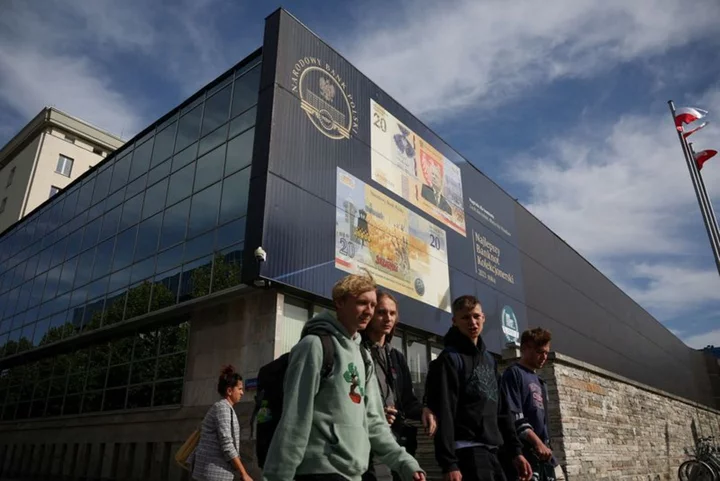
Political noise distracts central Europe's rate-setters
(Refiles with change to headline) By Pawel Florkiewicz, Gergely Szakacs and Marc Jones WARSAW/BUDAPEST The central bank governors
2023-11-27 16:15

Schaeffler Increases Vitesco Offer Price to €94 Per Share
Schaeffler AG increased its offer for Vitesco Technologies Group AG to €94 per share, bringing the value of
2023-11-27 15:54
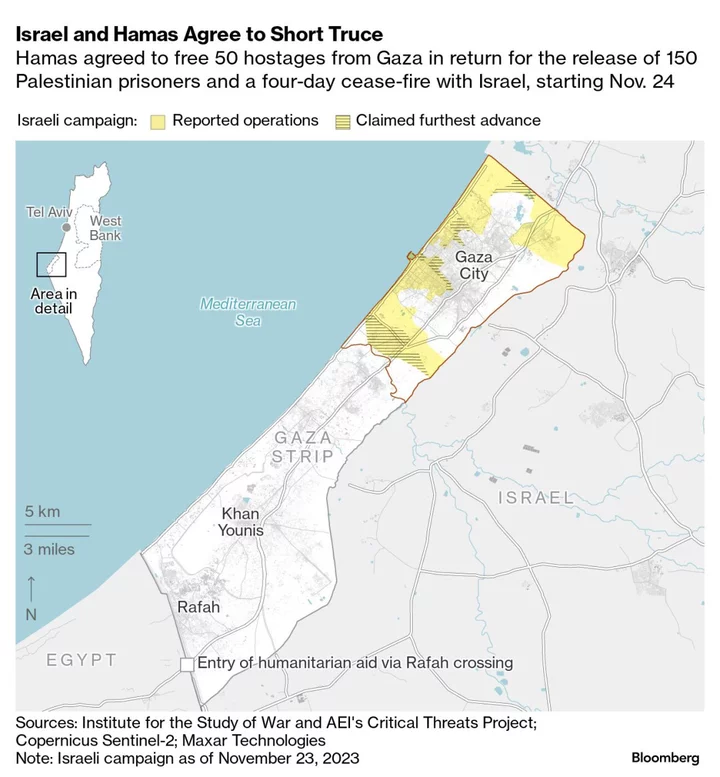
Pressure Grows on Israel to Prolong Cease-Fire in War With Hamas
Israel is coming under increasing pressure to agree to an extension of a four-day pause in its war
2023-11-27 15:53
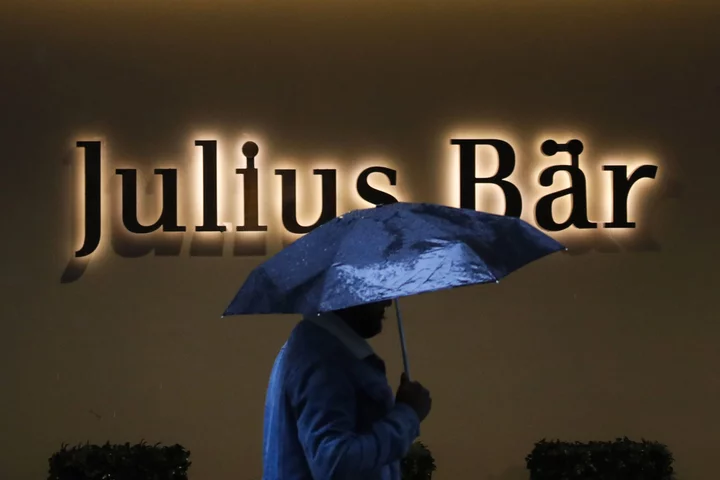
Julius Baer to Review Private Debt Business Over Signa Exposure
Julius Baer Group Ltd. is reviewing its private debt business after running up an exposure of 606 million
2023-11-27 15:51
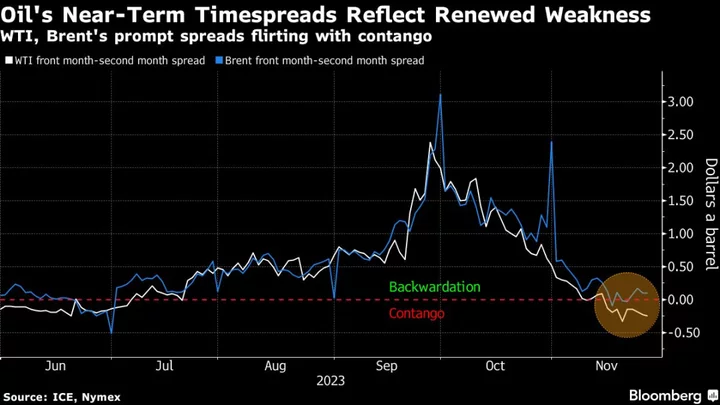
Oil Shows Signs of Softening Before High-Stakes OPEC+ Meet
Ahead of the delayed OPEC+ meeting on Thursday, there are indications oil supply is running ahead of demand,
2023-11-27 15:50
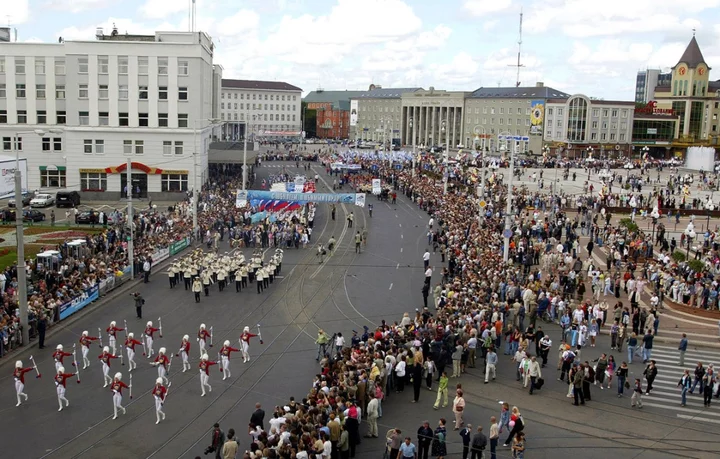
Russia forced to move air defences from Kaliningrad to Ukraine frontline amid heavy losses
Russia has likely been forced to move several air defence systems from its Kaliningrad enclave on the Baltic Sea coast to the frontline in Ukraine amid the losses it has suffered there, according to the UK Ministry of Defence (MoD). Vladimir Putin appears to have been left with no choice but to weaken the defences of Kaliningrad, an outpost bordered by Nato members on three sides and considered one of Moscow’s most strategically sensitive regions. “Exceptional Russian air transport movements through November 2023 suggest that Russia has likely moved strategic air defence systems from its Baltic coast enclave of Kaliningrad, to backfill recent losses on the Ukraine front,” the MoD said in its latest intelligence update on Sunday. Putin’s forces suffered particularly high losses to its SA-21 air defence systems in Russian-occupied Ukraine in late October 2023, it said. Ukrainian attacks most likely destroyed at least four Russian surface-to-air missile systems that were located in occupied territories in a span of a single week, the MoD said in an earlier update on 2 November. “The fact that the Russian MoD appears willing to accept additional risk here highlights the overstretch the war has caused for some of Russia’s key, modern capabilities,” the MoD said. Sandwiched between Poland and Lithuania on Nato’s eastern flank, Kaliningrad is geographically completely separated from the country’s main territory. The isolated oblast is only accessible to Russia through a contentious strip of land, the Suwalki gap, that links Russian ally Belarus to Kaliningrad. Moscow places significant strategic importance on Kaliningrad because it houses the Russian Baltic Fleet in the port of Baltiysk, and it stands out as one of Russia’s few ice-free European ports. In May, Poland said it was reverting the name of Kaliningrad to its historical name Krolewiec on maps, prompting a furious reaction from the Kremlin. The region was formerly called Koenigsberg when it was ceded from Germany to the Soviet Union after the Second World War. In 1946 the Soviets renamed it Kaliningrad, after Mikhail Kalinin, one of the leaders of the Bolshevik revolution. Read More Booker Prize winner Paul Lynch on Dublin riots: This is always under the surface Iceland’s new #1 selfie spot may have emerged out of ground despite volcano threat Russia places Meta spokesperson on wanted list Booker Prize winner Paul Lynch on Dublin riots: This is always under the surface Iceland’s new #1 selfie spot may have emerged out of ground despite volcano threat Russia places Meta spokesperson on wanted list
2023-11-27 15:50
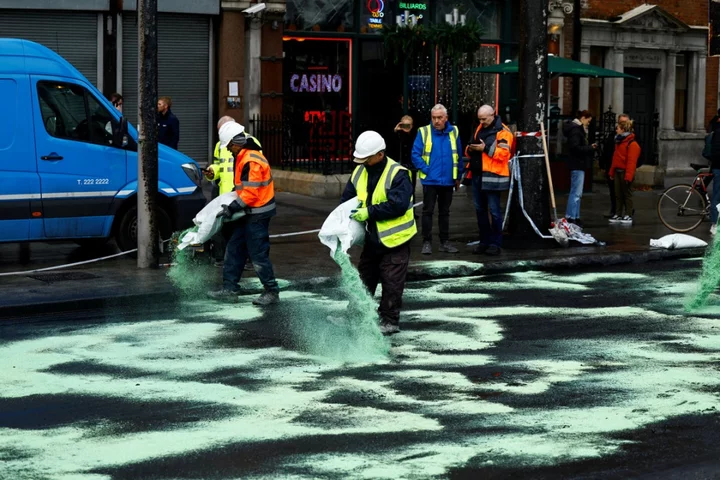
Booker Prize winner Paul Lynch on Dublin riots: This is always under the surface
Irish Booker prize winner Paul Lynch has said he was “astonished” by violent disturbances on the streets of Dublin this week, but this kind of behaviour is “always under the surface”. The author, who lives in Dublin, spoke at a Sunday press conference after he received the award during a ceremony at Old Billingsgate, London His dystopian novel Prophet Song explores what happens when his home country slides into authoritarianism. When asked what he thought about the riots in Ireland, which involved right-wing elements, Lynch said: “Like everybody else, I was astonished by it. “And at the same time, I recognise the truth that this kind of energy is always there under the surface and, I didn’t write this book to specifically say, ‘here’s a warning’, I wrote the book to articulate the message that the things that are in this book are occurring timelessly throughout the ages. “And maybe we need to deepen our own responses to that kind of idea. But at the same time, what was happening in Dublin? Well, you know, we can see it as a warning, I think we should see it was a warning.” Lynch also said he was “distinctly not a political novelist” and his book is really about “grief”, as it tells the story of a woman who has her husband taken away by the newly formed Irish secret police. He also said that “Ireland is an extraordinary country to live in” and a welcoming country. Lynch added: “It’s a great place for writers, any country that supports writers in the way that the Arts Council has supported me and many other really truly worthy Irish writers can only be a great place to live. “So I could not be more proud to be an Irish writer right now, it’s really something. “Well, you know, I think that if any of us were to look at the state of affairs from the point of view of 20 years ago, we couldn’t quite believe the modern world that we find ourselves in. “And I do think that you looked at things objectively, there is a sense of unravelling of a kind. “The question is, is what are we going to do about it and can anything be done about it? “I mean, Prophet Song is a counterfactual novel, it’s not a prophetic statement but there are resonances in it that are there for the taking for readers who want to think about these things.” He also said that “there’s layers and layers at work in my writing” and novels are complex. Lynch added: “To reduce the book down to one single message is actually pointless to a certain extent and goes against, the reason why I wrote the book, the book is actually its own answer.” He also said he was most likely to spend half of the prize, worth £50,000, on his mortgage. Lynch also said that before writing full time he had reached a point in his life where he had “exhausted all the possibilities”. He added: “There was a moment writing this book during lockdown, it was hugely challenging. I had long Covid for periods, and I’d wake up many days and I would have had just like, brain fog, and I had just, like, just fatigue, and I couldn’t work.” Read More Rishi Sunak slams Elon Musk’s ‘wrong’ remarks as antisemitism row deepens Former England footballer Ian Wright among those to collect honours What the papers say – November 27 Covid inquiry kicks off key week with Khan and Burnham giving evidence AI image generators ‘being used by children to create indecent images’ Bill to ban creation of new leasehold houses to be introduced to Parliament
2023-11-27 15:47
